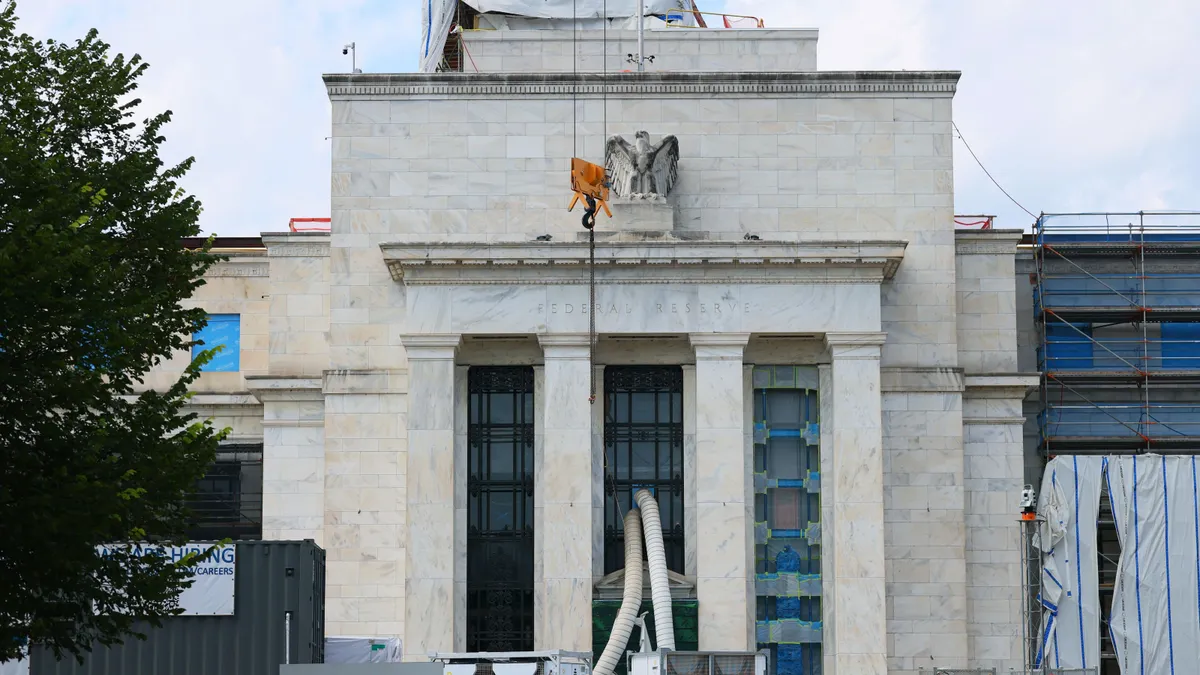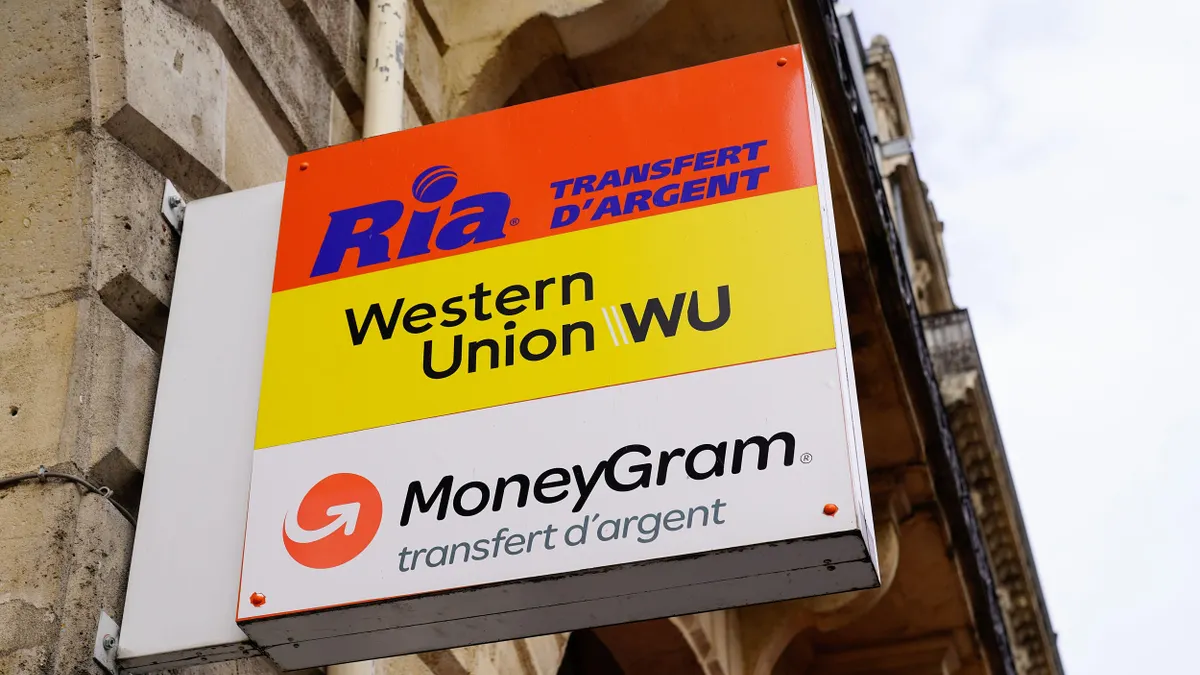U.S. payments and fintech executives have witnessed how open banking regulations in Europe unleashed sharing of data for third-party companies and consumers. Now, many are eager to see more of that in the U.S.
We interviewed three CEOs with experience across the global payments spectrum to understand their views of what open banking looks like in the U.S. and whether U.S. policymakers and regulators should take action to push it beyond market-driven moves, such as bilateral agreements between companies.
A new approach to the concept is being egged on by the Biden Administration, which in July encouraged the Consumer Financial Protection Bureau to implement a provision (1033) of the Dodd-Frank Wall Street Reform and Consumer Protection Act that would advance the kind of data sharing envisioned by open banking. Specifically, Biden's executive order suggested Dodd-Frank could "facilitate the portability of consumer financial transaction data so consumers can more easily switch financial institutions and use new, innovative financial products."
As the industry heads into 2022, we asked three CEOs for their views on the state of open banking and related regulation in the U.S. Here are insights from: Charlie Youakim, CEO of buy now-pay later firm Sezzle, a Minneapolis company that landed a $30 million investment from Discover Financial Services last year; Steven Smith, cofounder and former CEO of Finicity, a Salt Lake City business acquired by Mastercard in 2020 for $825 million (he's also now Mastercard's chief engagement officer for global open banking); and Eric Chen, CEO and cofounder of crypto services company Injective Labs, which has attracted investments from hedge fund manager Mark Cuban and the world’s largest crypto exchange, Binance. (The remarks were edited for brevity and clarity.)
What is the state of open banking in the U.S. with respect to payments innovation?
Youakim: It feels like it's moved from closed to open by force, not by acquiescence of the banks. They've been forced into it a little bit, which is not the way I'd like to see it. They've kind of kicked and screamed along the way, not wanting to do it. I think it's a great thing for consumers because if you can, basically through open banking APIs (application programming interfaces) and connectivity into existing accounts, extend the functionalities into other financial services for the consumers, by having that open data, it's a win for the consumer. But of course, the banks are protective of that data because they like to keep the customer.
Smith: The technology surrounding open banking actually got its start in the U.S. and has been a growing phenomenon for the last two decades. If you look across the U.S., most fintech services and solutions are powered by an open banking platform. The difference is that it's been very much an industry-led grassroots initiative and technology advancement in the U.S., whereas in Europe, it was very much a regulator-first approach.
Chen: There's a lot of legacy infrastructure within the United States and it's rightfully there because it worked for the history of the U.S. and so there's not a lot of motivation for the existing infrastructure to be improved upon … The belief in individualism and privacy is very deeply rooted within the American public so that's why I speculate that there might be some resistance to open banking because it almost feels like their privacy is being exposed, which is not the case. It just takes education for the public to fully adopt it.
Does the U.S. need new regulations to drive open banking and data sharing in the U.S.?
Youakim: In Europe, it has come down from the top. The governments have required banks to do X, Y and Z on open banking, to improve the systems. And, in the United States, I wish that was the case. I think there's a lot of areas of banking that could be improved. For instance, ACH (Automated Clearing House) is archaic. We should be at the point of doing real-time payments and there's, in my mind, no excuse as to why we're not there yet. And other countries have gotten there. The United States is not there. We should be leaders, not laggards … The banks don't want to force it because they make such unbelievable amounts of money from interchange fees. And once you can have real-time bank-to-bank payments you have less of a reason to use a debit card or credit card, because you're going to get the same benefit for free, or for a very low cost.
Smith: We have been very much an industry-led grassroots approach to open banking here in the US, but there are certain friction points that regulation to provide some guide rails on in the U.S. would be helpful in advancing the framework around open banking …There's not a government mandate that says to the banks, "You must open up your data store, and you must do it in the following way." And as a result, we are constantly in a negotiation with financial institutions as to what data elements are provided, and how they’re provided, and what are the KPIs (key performance indicators) around those data elements. So, getting to a framework that's got some regulatory mandate, and guide rails around it, would actually remove some of the friction that industry struggles to solve … In order for us to maintain that kind of innovation leadership and framework in the U.S., we're going to have to get assistance from regulators.
Chen: In terms of the regulatory front, it's like a legacy barrier — if it works, why change it, why fix it, but this won’t be the case soon because this country is always deeply rooted in innovation. With international pressure from (other countries) really improving their banking infrastructures and leaving America behind, the U.S. will have pressure to really change from a regulatory perspective.
Will the banks be so strong in their opposition to open banking that it won’t happen in the U.S.?
Youakim: We still have like 10 to 15 major banks, which is relatively fragmented. Australia did this initiative and they have four major banks — that's much more consolidated, much more powerful. We're more fragmented in the United States. So, I don't think the power of the banks should stop us here.
Smith: We expect that the CFPB will continue to move forward and pursue a policy under 1033. The Biden administration has, in essence, asked the agency to make that a priority, under the executive order. We expect that 1033 rulemaking will be a priority and that we'll see something in the coming months ... Are incumbents too strong to allow something like that? No, I think that 1033 is law, and that we’ll get rulemaking under 1033. It's going to be a very market-focused approach from regulators, a very steady hand at ensuring both open competition and access as well as safety and soundness in financial services.
Chen: These legacy financial institutions, at the end of the day, are still profit-driven. They still have survival and shareholder responsibility as their top priorities. So, (there will be) pressure from regulators, (and) pressure from consumers that force a change of behavior. And if they don't respond to this, then what's simply going to happen is that they’ll just fade out of irrelevance. There's a deep-rooted assumption that (for a) general consumer, there's an extreme stickiness when it comes to using your bank, but that doesn't mean that this assumption will not be broken ... (The banks') previous assumptions, in terms of how they can retain their user or their sense of security that the users will still stay, is a dangerous assumption to make, and I would assume that they're smart enough to know that they need to respond to the times.





















